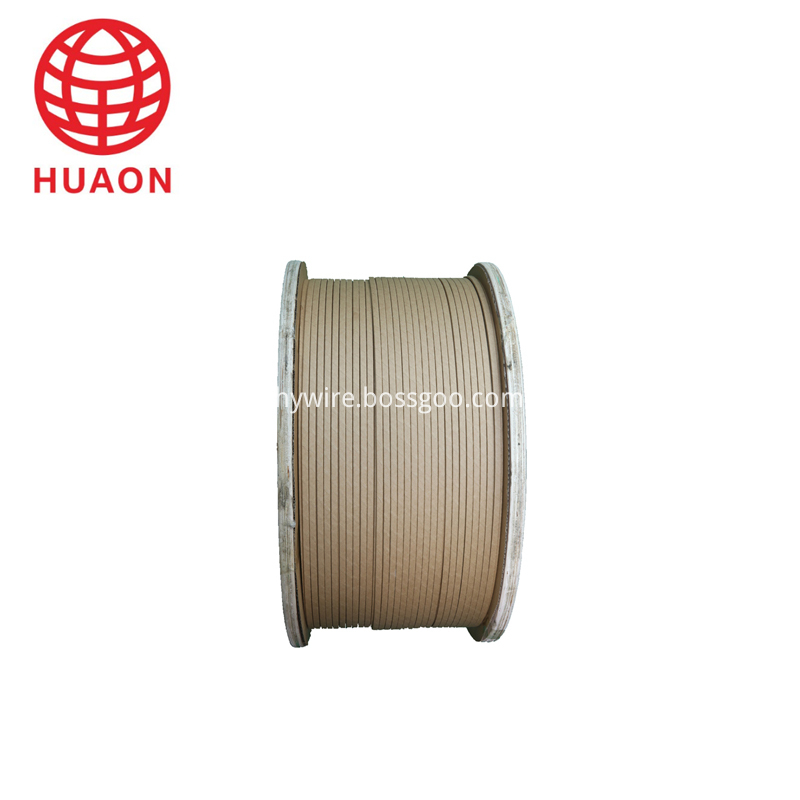| About Paper Covered Wire. |
Paper Covered Wire includes NOMEX Coated Copper Wire, Paper Covered Flat Aluminium Wire, Paper Covered Flat Copper Wire.
Application: oil-immersed transformer windings
Using 100% oxygen free pole as extrusion raw material, insulation material using high density telephone paper, cable paper, polyester, non-woven fabric.Self-locking wrapping is adopted within 6 layers, the bending performance is 15% higher than the national standard, the temperature index is 105℃ after the phone paper and cable paper are impregnated, this product has excellent voltage resistance performance in oil, widely used in transformer coil, stable performance, short processing cycle.

As per Conductor Material:Copper , aluminum
As per Inner Conductor: Paper wrapped bare
Insulation thickness:Double paper covered (DPC) or Triple Paper Covered (TPC) ,According to Customer`s requirements
Insulated Wire Copper,Paper Covered Wire,Paper Covered Copper Flat Wire,Paper Covered Insulated Wire Copper
HENAN HUAYANG ELECTRICAL TECHNOLOGY GROUP CO.,LTD , https://www.huaonwire.com